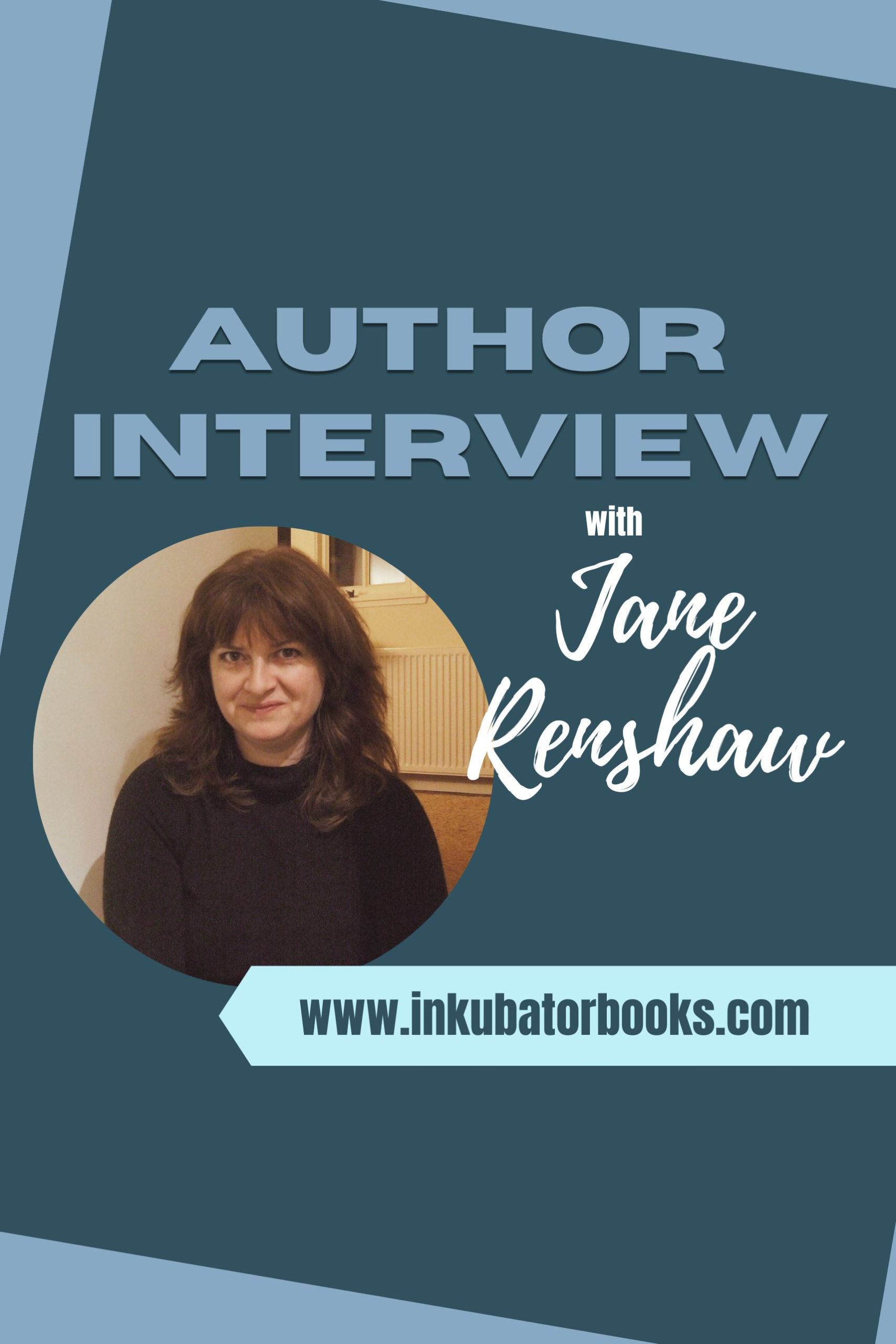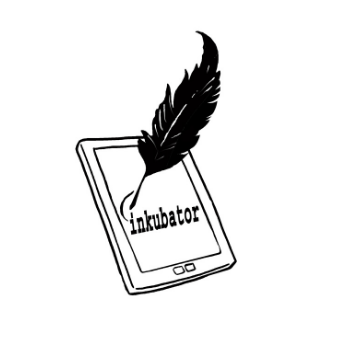Today, we’re speaking with Inkubator Books’ author Jane Renshaw. Jane is the author of No Place Like Home and The Child Who Never Was.
Inkubator Books: When did you start writing?
Jane Renshaw: I can’t remember doing much writing as a child other than schoolwork. I think my love of writing stories has its origin in the Lego and Plasticine worlds my sister and I created, populated by tiny plastic and ceramic animals and people. We spent days making the ‘set’ – it could be anything from a town in the Wild West to a boarding school – and then many more days enacting the dramas that played out there, each of us being responsible for half the ‘cast’. One interesting thing was that the names and characters of the animals and people were fixed, although their relationships, jobs and (often hideous) situations changed from one set to the next.
I first attempted a full-length novel in my twenties. It was a Mills & Boon romance, which some friends and I had decided would be easy money. How wrong we were! The ‘research’ was fun, and there was much hilarity to be had in reading our terrible prose aloud to each other, but my friends only wrote a few pages before giving it up as a waste of time. I enjoyed it so much that I finished mine, Forget Me Not – which was as bad as it sounds and was, of course, rejected by Mills & Boon. I don’t even have the manuscript anymore. It was too bad even to keep in a drawer.
IB: What does a typical day of writing look like for you?
JR: I can usually be found staring at the screen of my laptop, giving the subconscious part of my brain a chance to work on the latest writing problem while the rest of it plays Word Ferret (the digital equivalent of Boggle). For actual writing, though, I’m at my best in the morning, so I try to get in a few hours then. If I’m not feeling too lazy, I’ll go for a long walk in the afternoon – I live in a rural part of north-east Scotland, so there are plenty of scenic places to go to recharge my batteries, and I usually take a notebook with me for jotting down random ideas. My second-best writing time is late at night, when I find it easiest to lose myself in the world of the story.
IB: Do you base your characters off people you know or are they all the product of your imagination?
JR: I think I’ll say they’re all a product of my imagination and leave it at that…
IB: What’s the most difficult part of your writing process?
JR: Definitely plotting – and unfortunately that’s very important in a crime novel! Luckily for me, Brian at Inkubator Books is brilliant at it. I feel a bit like a learner driver with a very patient, very calm instructor who keeps having to grab the wheel and sometimes actually has to take over driving the car. The idea for the two timelines in The Stepson was Brian’s, for instance, which I knew was right for the story as soon as he suggested it, but would I have thought of it myself? Probably not. I do think I have got slightly better at plotting by following Brian’s method of planning everything in stages of increasing detail before starting to write. I have always outlined, but not, I now realise, properly.
IB: What comes first for you – plot or characters?
JR: I think it varies from book to book, and sometimes it’s difficult to disentangle what comes first. In The Stepson, it was a situation – a whole family disappearing apart from the teenaged son. But the characters were integral in bringing that about, so plot or characters? Not sure.
IB: Which of your books is your favorite? Why?
JR: This is a hard one! I have a soft spot for my first book, The Sweetest Poison, which took ages to write and has a big cast of characters, many of whom will recur throughout the series, which I self-publish. I know the series is not commercial, though, and quite niche. Of the psychological thrillers published by Inkubator Books, I really enjoyed writing my latest one, The Lost Boy, for reasons I can’t go into without giving away the plot…
IB: How would you describe your ideal reader?
JR: Someone with rather a dark sense of humour!
IB: What are you doing when you aren’t writing?
JR: I’m involved in looking after my dad, who had a stroke four years ago. I also still do a bit of copy-editing work on scientific and medical journals. To relax, I enjoy going for walks, playing (ahem) brain-stimulating word games, watching TV dramas and eating chocolate-covered marzipan. The last three can be done simultaneously, although in that case I probably only do justice to the eating of the marzipan. In the summer I am often outside gardening, although I’m not sure I would say I enjoy all aspects of that!
IB: What does your writing space look like?
JR: I don’t really have a writing space as such. Usually I’m tapping away on my laptop in the sitting room of my parents’ cottage, which is a big space with a wood-burning stove and French doors out to the garden. Wherever my laptop is, that’s my writing space.
IB: Have you ever traveled to research for a book?
JR: I love T. J. Brearton’s answer to this question: ‘Yes (he said, eyeing his itemized tax deductions)…’ But actually, yes. Only within Scotland, though, as all my books so far have been set there. The Lost Boy involves a fictitious Hebridean island which is based on several I have visited.
(Ed Note: T.J.Brearton is a fellow Inkubator Books author.)
IB: What genres do you like to read? Who are some of your favorite authors?
JR: I read most genres. My favourite author is Dorothy Dunnett, who wrote two wonderful historical series – the Lymond Chronicles and the House of Niccolo books. I do stick mainly to crime fiction, though, and in particular I love anything by Lisa Jewell, Belinda Bauer or my friend Lucy Lawrie. Lucy’s latest novel, The Child in My House, is one I keep thinking about. It’s intriguing, surprising, engaging, dark and funny, which I suppose would sum up the kind of book I like. I have recently very much enjoyed Jan Durham’s cozies, which have plenty of humour but are also real page-turners.
(Ed Note: Jan Durham. is a fellow Inkubator Books author.)
IB: How do you come up with names for your characters?
JR: Sometimes a name will just pop into my head, or I’ll see it written down somewhere. I also trawl the internet for lists of first names given to babies in years corresponding to when the character would have been born.
IB: What was your favorite childhood book?
JR: My mum used to read to my sister and me all the time. My most vivid memory is not of a whole book but of just one page. I can’t remember the name of the book, but this page had a picture of the villains, a fox and a wolf (I think) dressed in Victorian garb, walking along with big fangy smiles, which really scared and fascinated me. I can remember knowing when that page was coming in the story and dreading it, but at the same time anticipating it with excitement.
IB: Have you ever abandoned a book you were writing? How did you know it was the right thing to do?
JR: Lots of times! I have half a dozen unfinished masterpieces in the electronic equivalent of a drawer. I think my woeful plotting skills are to blame for their premature demise. As for knowing it was the right thing to abandon them… It was a bit like finding something that’s been festering in the fridge for weeks and has mould all over it, and not having to think too hard about whether it’s edible or not.
IB: Do you have any tips for first-time authors?
JR: It’s not very long since I was a first-time author myself! I really only know what works for me. My biggest fear is coming between the reader and the story. My pet hate is a style that’s very ‘Look at the writing!’ – I find this pulls me out of the story. For me, the best way to avoid this is to try to relax when writing a scene and forget that anyone else is going to read it. I then revise with the potential reader looking over my shoulder – but often, ironically, I find I’m taking out ‘Look at me’ stuff that’s crept in!
IB: Who inspires you?
JR: My writer friends Lesley McLaren and Lucy Lawrie are the most wonderful source of inspiration – we swap reads on a regular basis. We have similar tastes in writing and similar senses of humour. Brian at Inkubator Books is also great at coming up with ideas and getting me thinking.
IB: If you could eliminate one thing from your daily life, what would it be?
JR: Marzipan. No, wait…
IB: Do you have any pets?
JR: Until recently, we had a robin called Bertie who used to feed from our hands. Bertie is sadly no more, but we still have Genghis the sparrow, who is very demanding at the moment – he’s feeding his second brood.
IB: How do you approach your genre in a unique way?
JR: I spend a lot of time trying to think of original situations for my characters, but with so many crime novels out there now, I doubt whether I succeed in this.
IB: How do you manage the “whodunit” aspects of your story as far as clues and revelations? Do you outline?
JR: Ha! I try. Fortunately, Brian is there to grab the wheel.
IB: How do you relax?
JR: See above – feeding the birds is a great form of relaxation. I also love watching the telly, as Maggie (a character in The Stepson) would be pleased to know!
IB: Who are your first readers when you write a new book?
JR: Brian, Lucy and Lesley. All are great at picking up problems and suggesting solutions.
IB: What’s one thing you wish your readers knew about you?
JR: I really love it when readers get in touch with me, for whatever reason, so if anyone is thinking of contacting me, please do.
(Ed note: You can contact Jane here.)
IB: Which do you enjoy writing more: dialogue or internal thoughts?
JR: Dialogue comes quite easily to me, so I suppose I enjoy it more. I think it’s easier because I’m hearing people speak all the time in real life, but I’m privy to no one’s internal thoughts but my own – thank goodness! – so getting into the head of another person takes more effort.
Thanks to Jane Renshaw for sitting down with us today.
Want to read Jane’s books? Check out her titles on Amazon.
You can find her at the following places:
Website: https://www.janerenshaw.co.uk
Instagram: janerenshawauthor
Facebook: https://www.facebook.com/jane.renshaw.77920

